Who would have thought of using bamboo in place of metal in the making of automobiles? Well, the light wood-like material is not seen as either strong or reworkable as the steel bodies. It is a wrong assumption. The bamboo’s tensile strength is as good a steel, making it a great substitute. It is also a biodegradable and environmentally friendly material that can be grown in fields. Although motorcycles and minicabs are the primary public transport vehicles in Philipines, recently, two bamboo taxis have been made that run on biofuel coconut diesel.
A taxi made of bamboo straps pleases the eye as compared to all metallic bodies. It is an extremely environment-friendly material and unlike the body materials of today, the bamboo doesn’t need a lot of work to be done on it. There are two models currently deployed on the roads named Eco1 and Eco2. Eco1 can accommodate twenty passengers and a gallon coconut diesel lasts for an astonishing eighty hours! Eco2 has an even better mileage stats, but it can carry only eight people in it. Ninety percent of the taxis’ exterior is manufactured from bamboo strips and Tabontabon youth were involved in the making of the cab. The vehicles also have a beautiful collection of local mats around the interior that are called banig.
Overall it is a very cute taxi that should be seen more in recreational areas like picnic spots and parks. Tourists can enjoy the ride and have a look the future of renewable energy based taxis at the same time. We hope to see more of them everywhere!


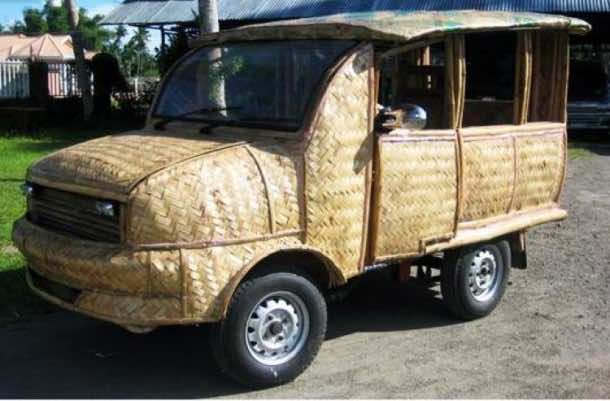
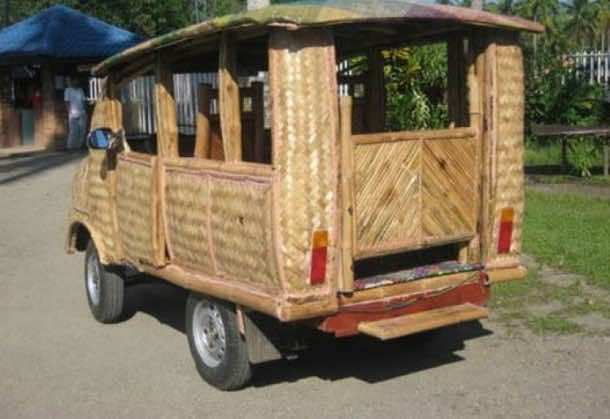
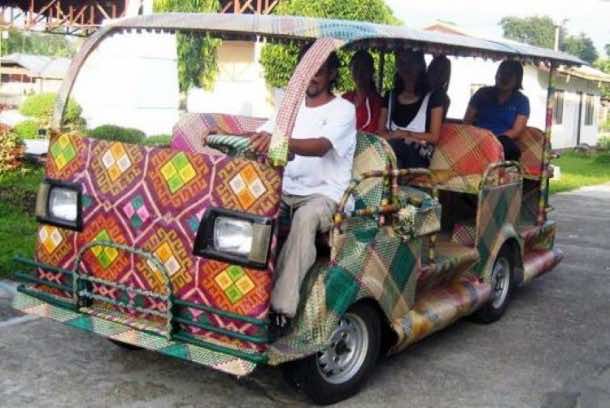
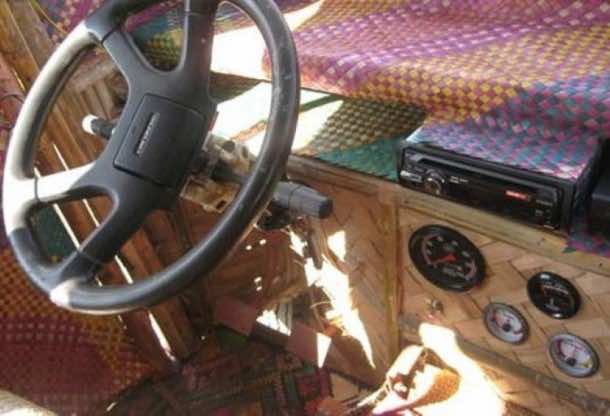
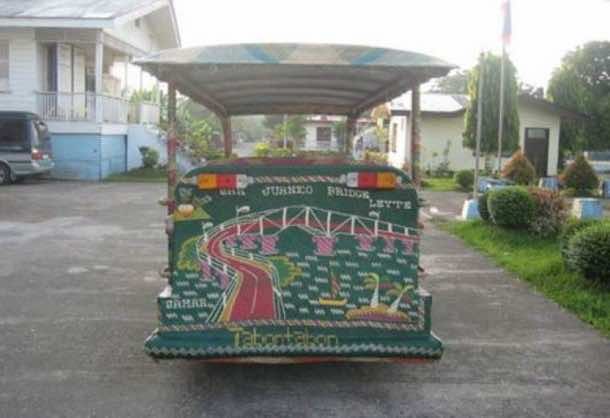
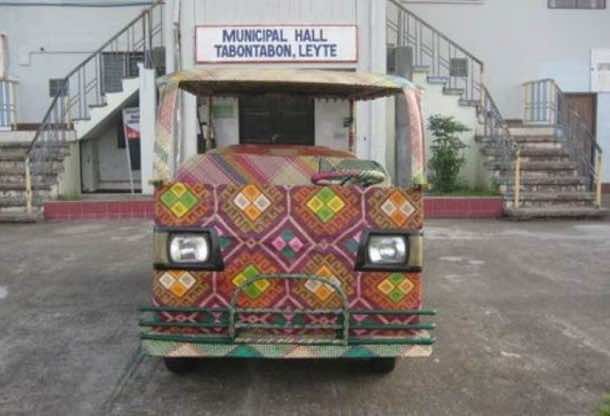
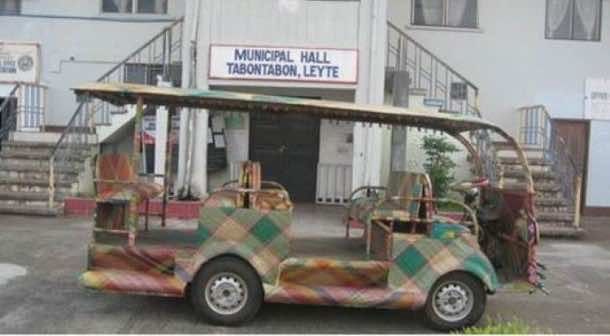

Yeah, and then they fell all trees to give space for coconut palms!
And so 2-5 years from now they have deadly landslides due to this ‘smart’ solutions!!
Make the taxis run on electricity!!
😉
That is certainly bogus – one of those foolish ideas. Why? They are just outer-lay upon the original sheets of metals or frames in the vehicle. Thus, if the material gets soaked, soon the metals will disintegrate at a much faster rate. There is nothing astonishing about it.